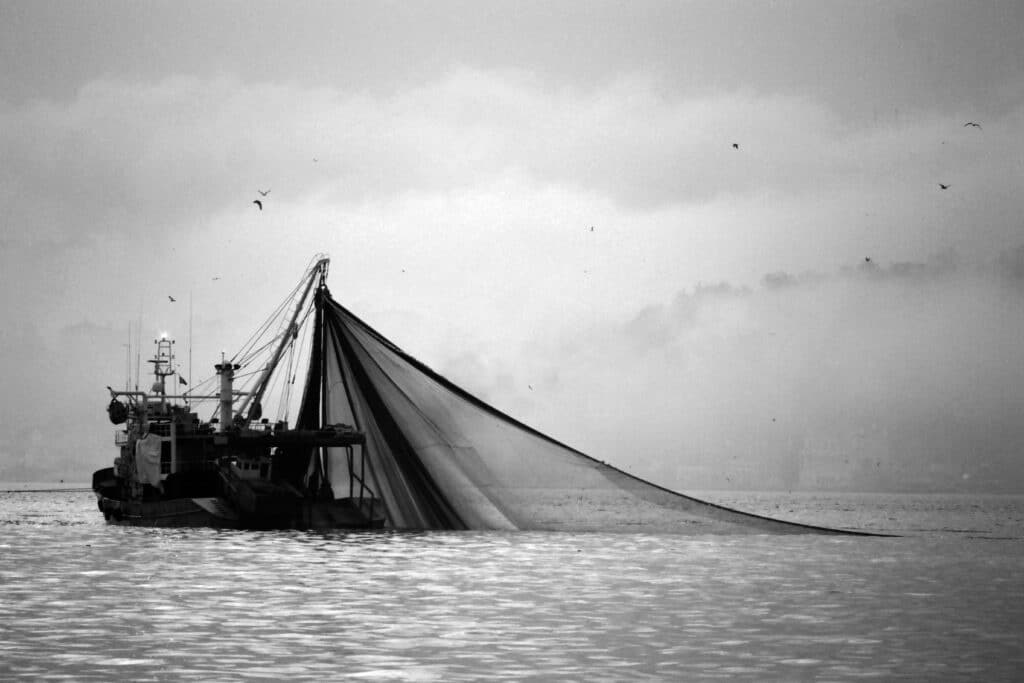Overexploitation: strong negative impacts on biodiversity and society

Population growth and increased consumption lead to intense food production. As a result, our natural resources are overexploited.
Overexploitation occurs when too much of a resource is extracted, exceeding its natural regeneration capacity. This phenomenon is particularly noticeable in forestry, agriculture, fossil fuel mining, fishing, and grazing. You will also find here an article discussing water scarcity, partly caused by overexploitation of water resources.
Consumption continues to grow
Overexploitation is causing Earth Overshoot Day to arrive earlier. This is the date on which it is estimated that the world's population has consumed all the natural resources that the planet is capable of producing in a year. Each year, Earth Overshoot Day seems to arrive earlier and earlier. In 2020, it fell on August 22nd, whereas it was December 20th in 1971. It would therefore take 1.6 Earths to meet global needs in a year.
Resource consumption remains unevenly distributed around the world. But if we all consumed as we do in France, we would need 2.7 planets to meet our needs.
Furthermore, according to a UN report, the world's population will reach 10.9 billion Without adopting sustainable consumption and resource management patterns, Earth Overshoot Day will continue to arrive earlier and earlier.
Overproduction and its economic and social consequences
The phenomenon of overexploitation is accompanied by that of overproduction. Overproduction occurs when production exceeds consumer demand. This phenomenon generally leads to a drop in prices and therefore the closure of the least competitive production centers. This is followed by an increase in unemployment and a decrease in wages, as well as an economic crisis (which will reduce production to meet demand and allow a return to growth).
In recent years, this phenomenon has been observed in both milk and pork. Their prices fell during 2015. This drop was so significant that it prevented farmers from covering their costs and earning a decent income.
The negative impacts of overexploitation on the planet
Agricultural production requires a large amount of water for irrigation, as well as fertilizers and pesticides. Increased production is driven by the expansion of arable land at the expense of forests.
Added to this is the production of animal feed for meat and milk production. According to the FAO, approximately 28% of the world's agricultural land is used to produce food that is subsequently wasted, never having been consumed. This waste amounts to 10 million tons in France and 1.3 billion tons worldwide each year.
Overfarming and overgrazing lead to soil and water pollution, and soil depletion. Deforestation destroys habitats, increasing the already significant number of threatened and endangered species. It reduces the absorption of greenhouse gases, disrupts the water cycle, and prevents water from infiltrating the soil (because trees make the soil permeable). Overfishing, for its part, disrupts the food chain and marine ecosystems, leading to the disappearance of species and the unintentional capture of species such as dolphins and turtles.
Once produced, this food must be packaged and transported to processing and/or distribution centers, while maintaining the correct temperature. This requires additional energy, emits greenhouse gases, and produces waste (food or otherwise).
This puts pressure on biodiversity and the environmental burden is multiplied when food is wasted.
Overexploitation and food waste
Sources: fao.org , ined.fr , biovision.ch , projetecolo.com , msc.org , actu-environnement.com , n aturefrance.fr , lefigaro.fr
FOR A BETTER FUTURE
Would you like to take action against food waste
Kikleo helps you reduce food waste and increase the performance of your restaurant by offering you a analysis of your losses using innovative technological tools.